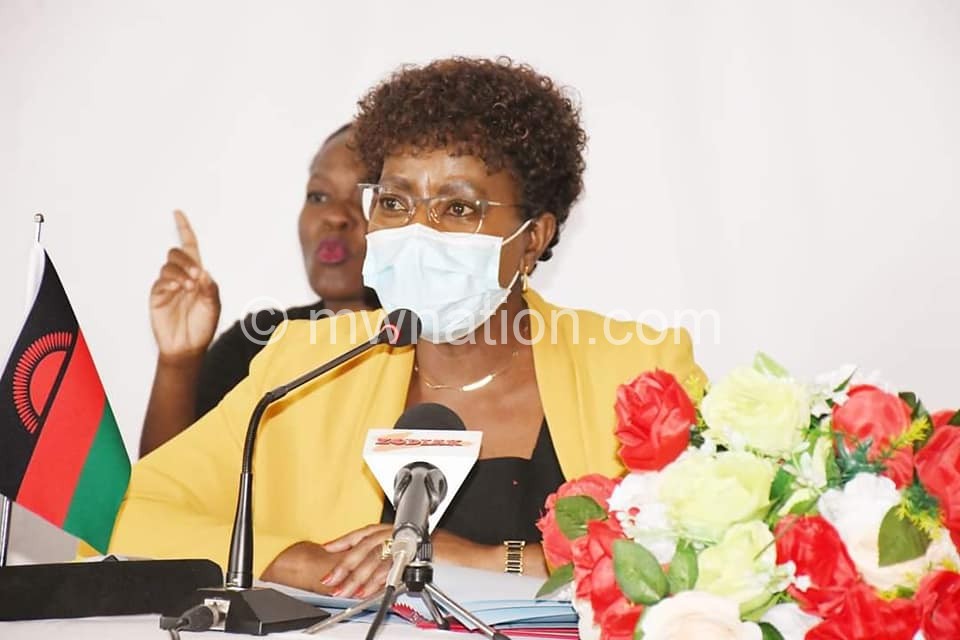Ministry reviewing school selection policies
Minister of Education Agnes NyaLonje says her ministry is reviewing selection policies to all levels of education institutions to ensure they are based on merit and performance.
In her ministerial statement in Parliament made available to The Nation yesterday, the minister said many quarters in the country have cast doubt on the legitimacy of existing policies and practices mainly because of imposition of the quota system these past decades.

NyaLonje said her ministry will work hard to ensure that the selection policies and processes gain the trust and confidence of all stakeholders.
She said: “The recent decision by the Ombudsman to investigate and audit the selection of 2 000 PSLCE [Primary School Leaving Certificate of Education] graduates to Form One will contribute to this reform area.”
In January this year, the ministry stated that the Ombudsman’s office would launch an independent investigation following concerns surrounding the selection process of the PSLCE examination.

In an earlier statement, the ministry’s Principal Secretary ChikondanoMussa said government acknowledged and understood the concerns that were raised pertaining to the selection process.
Aside from the policy selection review process, NyaLonje yesterday also said her ministry has also established an expert committee to review issues affecting learners’ performance which lead to inequities in the performance of different primary schools.
While pointing out that the work of the committee will commence shortly, the minister said her ministry also plans to improve quality of education at all levels so that the country moves from the bottom of the global education league table.
NyaLonje said to improve the country’s education quality, the ministry will professionalise early childhood development (ECD), further outlining plans on how to achieve such.
She added that the ministry will promote evidence-informed policy and decision-making, strengthen school and teacher training college governance and management through establishment of local boards and enhance teacher welfare and development, among
contribution to the country’s development. Each and every MP should take an interest in the education of the girl child and ensure that children go to school.”
In an effort to end early marriages, Kaliati said government and other stakeholders have managed to save 10 000 girls from early marriages, adding more could be saved if several community leaders took part.
She said MPs should be role models to children in their constituencies and help the children believe in themselves that one day they will make it in life.
In recent years, some traditional leaders, including Senior Chief Kachindamoto of Dedza and Senior Chief Chikumbu of Mulanje have led in efforts to end early marriages, with Kachindamoto breaking over 850 such marriages.
Kaliati commended Speaker of Parliament Catherine Gotani Hara for promoting girls education and being a role model to many.
“I would like to commend you Madam Speaker for being a champion of girl child education and having a passion in promoting education of a girl child. You are a role model to many.
“If we can all take the lead in fighting early marriages and teen pregnancies, the others.
Said the minister: “We plan to bring a Bill to the next sitting of Parliament to establish the Malawi Qualifications Authority which will subsequently develop a national qualifications framework. This will bring credibility to the quality of national and international programmes and courses offered by our education institutions.”
NyaLonje said transforming the country’s education system is a journey which everyone must participate, adding that there is need to prioritise investment in areas of greatest need so that the most disadvantaged children and youths get a fair chance in life.
At the beginning of the Ombudsman’s investigation and audit of the PSLCE examination selection process, it was revealed that the probe findings would be released within four months.
The probe is expected to review in detail the events and processes involved in awarding grades and selection process to secondary schools in the 2019/20 academic year.
The investigation followed a public concern that the secondary selection sidelined students from the Northern Region in favour of those from the Centre and the South.
Following the outcry, government said the Ombudsman would carry out the probe into the process.





